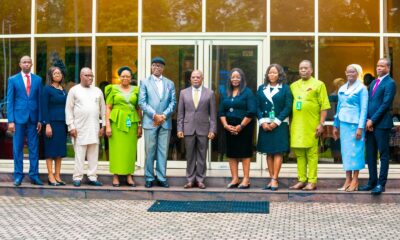Featured
Rivers Executive Council Approves N70.25bn For Roads To Rural Communities …Ratifies PPP Arrangement For Dr. Peter Odili Cancer Centre, Mother And Child Hospital
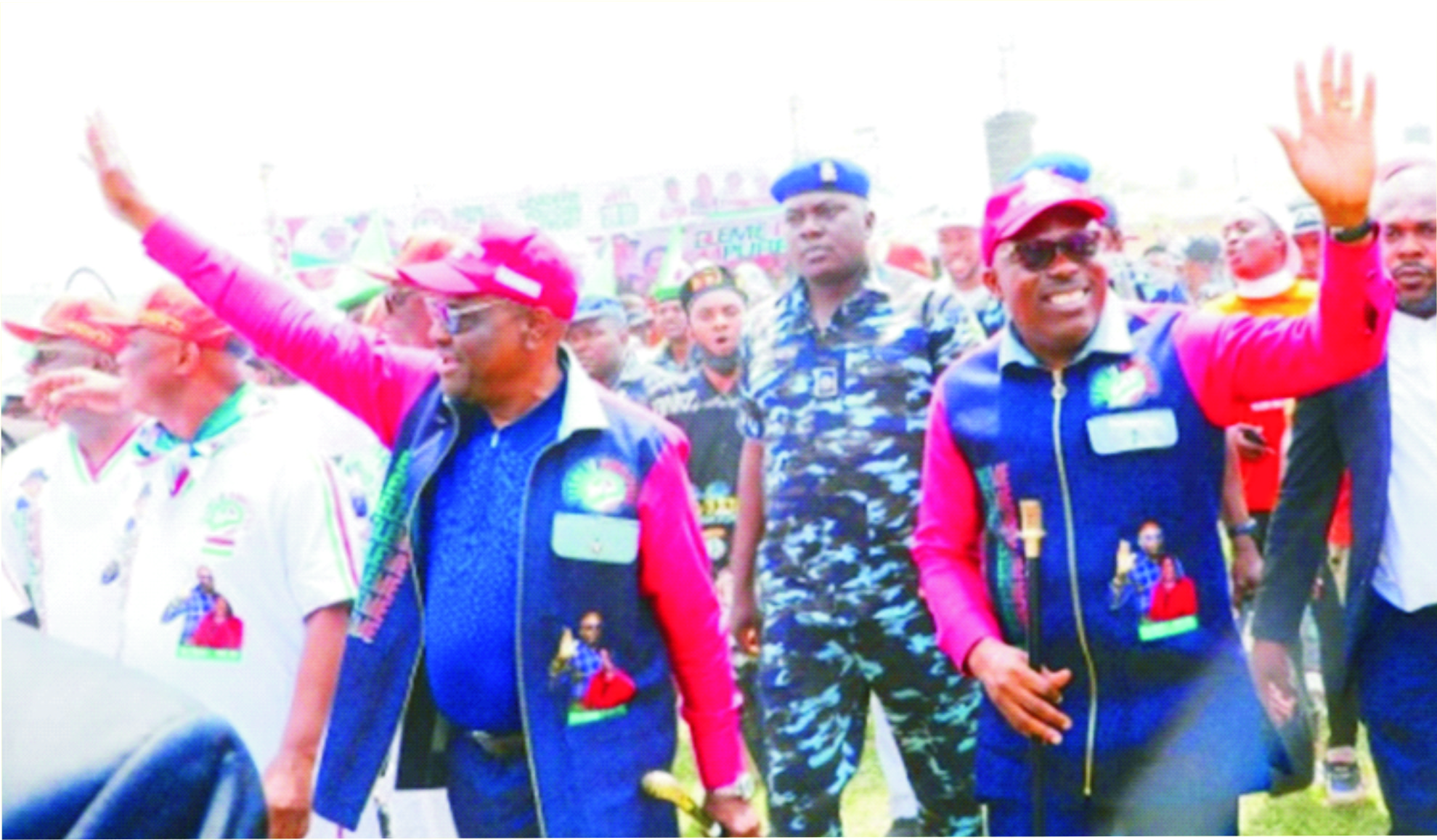
Rivers State Executive Council has approved N70. 25 billion as total contacts sum for the construction and dualisation of two critical road projects that will further connect rural communities together and ease movement onward to the state capital.
The approval was made at its meeting that held at Government House, Port Harcourt, which was presided over by Governor Nyesom Ezenwo Wike, yesterday.
Briefing journalists after the meeting, Rivers State Commissioner for Works, Dr. George-Kelly Dakorinima Alabo said the contract approval was made for the reconstructions and dualization of the Emohua- Abalama -Tema Junction Road, and extension of dualization of the Ahoada to Omoku Road.
“The Executive Council ratified the contracts award for the reconstruction and dualization of the Emohua to Abalama to Tema Junction Road. This road is 15.24 kilometers long and will be a dual carriageway with streetlights and it is estimated to cost N21.26 billion naira.”
Dr. Alabo spoke further: “In the same vein, the State Executive Council has also ratified the award of the extension of the dualization of the Ahoada to Omoku Road from Ogbo-Ukordu road junction to Omoku and that is going to cost N48.998 billion naira.
“This is a 25.4 Kilometer dual carriageway with 7.6 meters lane on each lane and also with streetlights. Both projects will be taken simultaneously, meaning that they will run concurrently.”
The Commissioner for Works stated that the contracts were awarded to Julius Berger Nigeria PLC and they have 18 months completion period.
“Both projects are estimated at 70.25 billion naira and the payment structure will be such that it will be tied to the IGR through an irrevocable standing payment order.
“So an irrevocable standing payment order of N4 billion naira amount will be made for 18 months. In 17 months N68 billion naira would have been paid and by the 18 months the balance of N2.285 billion naira will be paid.”
Dr. Alabo also informed that the state government is looking at the possibility of extending the Emohua-Abalama-Tema road to Ogbakiri community.
According to him, already the feasibility study is ongoing between his ministry and Julius Berger Nigeria PLC and are determined to bring the likely cost implication before the Executive Council of the State government.
On his part, the Commissioner for Health, Prof. Princewill Chike, informed that council also ratified the Public, Private Partnership arrangements that were secured for an effective management of the radiotherapy unit of the Dr. Peter Odili Cancer and Cardiovascular Diagnostic and Treatment Centre, and the Mother and Child Hospital in Port Harcourt.
“So, at this Executive Council Meeting of today, 12th of February 2023, the ratification was given for both facilities; the Mother and Child Hospital, to be managed by the Global Health Managers and a conglomerate of other companies, as well as the Dr. Peter Odili Cancer and Cardiovascular Diagnostic and Treatment Center.”
Also briefing journalists after the meeting, Commissioner for Education, Prof. Chinedu Mmom said council gave approval for the procurement of 1,442,000 textbooks, classics, and encyclopedia that will be distributed to all the public owned primary, nursery, junior secondary and senior secondary schools in the States free of charge.
Prof. Mmom informed that the Rivers State Executive Council approved the requests sent to it by the Chief of Naval Staff and have ceded to the Nigerian Navy the Nne Kurubo Model Secondary School , Ebubu, in Eleme Local government area for use as Naval Training School that was in Onne
Also approved for the Nigerian Navy is the Government Model Secondary School, Egberu, Ndoki in Oyigbo that will be used as Naval Headquarters Training Command.
“The school was abandoned by the previous administration and that has become a breeding ground for criminals and other miscreants. So, the request presented by the Chief of Naval Staff as being granted today will reduce criminal activities in this area.”
Featured
Rivers A Strategic Hub for Nigeria’s Blue Economy -Ibas …Calls For Innovation-Driven Solutions
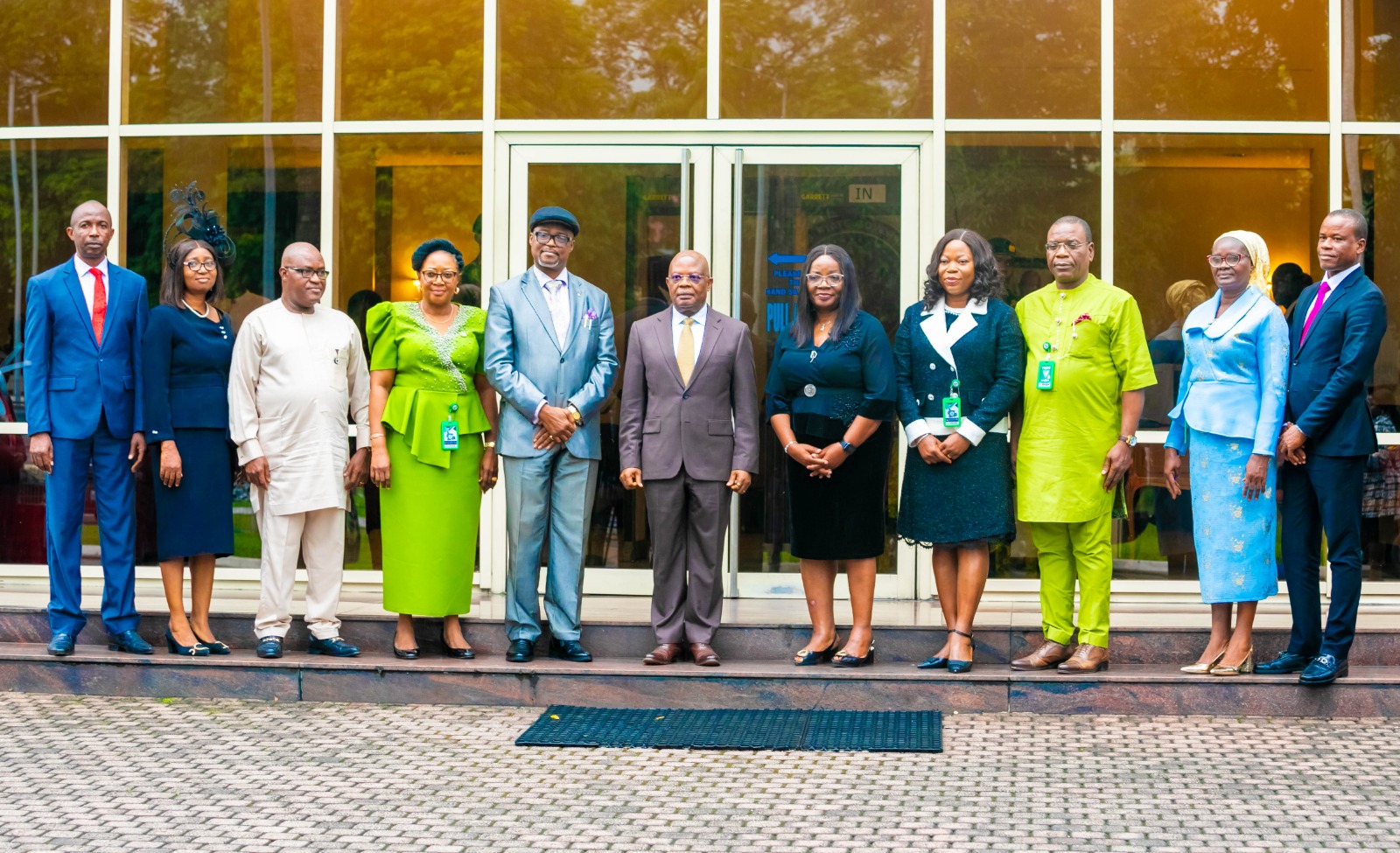
The Administrator of Rivers State, Vice Admiral (Rtd.) Ibok-Ete Ibas, has emphasized the need for innovation-driven strategies, strategic partnerships, and firm policy implementation to fully harness the vast potential of the blue economy.
Speaking during a courtesy visit by participants of Study Group 7 of the Executive Course 47 from the National Institute for Policy and Strategic Studies (NIPSS) at Government House, Port Harcourt, on Monday, Ibas highlighted the importance of diversifying Nigeria’s economy beyond oil by leveraging maritime resources to create jobs, enhance food security, strengthen climate resilience, and generate sustainable revenue.
The Administrator, according to a statement by his Senior Special Adviser on Media, Hector Igbikiowubo, noted that with coordinated efforts and innovative solutions, the blue economy could serve as a catalyst for inclusive growth, economic stability, and long-term environmental sustainability.
“It is estimated that a fully developed blue economy could generate over $296 million annually for Nigeria, spanning fisheries, shipping and logistics, marine tourism, offshore renewable energy, aquaculture, biotechnology, and coastal infrastructure,” he stated.
“We must transition from extractive practices to regenerative, inclusive, and innovation-driven solutions. This requires political cohesion, intergovernmental collaboration, robust infrastructure, and institutional capacity—all of which must be pursued with urgency and intentionality,” he added.
Ibas urged sub-national governments, particularly coastal states, to domesticate the national blue economy framework and develop tailored strategies that reflect their comparative advantages.
He stressed that such efforts must be guided by disciplined planning, regulation, and investment to maximize the sector’s potential.
Highlighting Rivers State’s pivotal role, the Administrator outlined its strategic advantages as follows:
•Nearly 30% of Nigeria’s total coastline (approximately 853km)
•Over 40% of Nigeria’s crude oil and gas output
•More than 33% of the country’s GDP and foreign exchange earnings
•416 of Nigeria’s 1,201 oil wells, many located in marine environments
•Two of Nigeria’s largest seaports, two oil refineries, and the Nigerian Liquefied Natural Gas (NLNG) terminal in Bonny Island—one of Africa’s most advanced gas facilities
Despite these opportunities, Ibas acknowledged challenges such as pollution, coastal erosion, illegal oil refining, unregulated fishing, inadequate infrastructure, and maritime insecurity.
He reaffirmed his administration’s commitment to institutional reforms, coastal zone management, and inter-agency collaboration to build a governance structure that supports a sustainable blue economy.
“Sustainability must be embedded in our development models from the outset, not as an afterthought. We are actively exploring partnerships in maritime education, aquaculture development, port modernization, and renewable ocean energy. We welcome knowledge-sharing engagements like this to refine our strategies and enhance implementation,” he said.
He urged the NIPSS delegation to ensure their findings translate into actionable recommendations that address the sector’s challenges.
Leader of the delegation, Vice Admiral A.A. Mustapha, explained that the visit aligns with their strategic institutional tour mandate on the 2025 theme: “Blue Economy and Sustainable Development in Nigeria: Issues, Challenges, and Opportunities.”
The group is engaging stakeholders to deepen understanding of policy efforts and institutional roles in advancing sustainable development through the blue economy.
Featured
INEC To Unveil New Party Registration Portal As Applications Hit 129

The Independent National Electoral Commission (INEC) has announced that it has now received a total of 129 applications from associations seeking registration as political parties.
The update was provided during the commission’s regular weekly meeting held in Abuja, yesterday.
According to a statement signed by the National Commissioner and Chairman of the Information and Voter Education Committee, Sam Olumekun, seven new applications were submitted within the past week, adding to the previous number.
“At its regular weekly meeting held today, Thursday 10th July 2025, the commission received a further update on additional requests from associations seeking registration as political parties.
“Since last week, seven more applications have been received, bringing the total number so far to 129. All the requests are being processed,” the commission stated.
The commission revealed the introduction of a new digital platform for political party registration. The platform is part of the Party Financial Reporting and Auditing System and aims to streamline the registration process.
Olumekun disclosed that final testing of the portal would be completed within the next week.
“INEC also plans to release comprehensive guidelines to help associations file their applications using the new system.
“Unlike the manual method used in previous registration, the Commission is introducing a political party registration portal, which is a module in our Party Financial Reporting and Auditing System.
“This will make the process faster and seamless. In the next week, the commission will conclude the final testing of the portal before deployment.
“Thereafter, the next step for associations that meet the requirements to proceed to the application stage will be announced. The commission will also issue guidelines to facilitate the filing of applications using the PFRAS,” the statement added.
In the meantime, the list of new associations that have submitted applications has been made available to the public on INEC’s website and other official platforms.
Featured
Tinubu Signs Four Tax Reform Bills Into Law …Says Nigeria Open For Business

President Bola Tinubu yesterday signed into law four tax reform bills aimed at transforming Nigeria’s fiscal and revenue framework.
The four bills include: the Nigeria Tax Bill, the Nigeria Tax Administration Bill, the Nigeria Revenue Service (Establishment) Bill, and the Joint Revenue Board (Establishment) Bill.
They were passed by the National Assembly after months of consultations with various interest groups and stakeholders.
The ceremony took place at the Presidential Villa, yesterday.
The ceremony was witnessed by the leadership of the National Assembly and some legislators, governors, ministers, and aides of the President.
The presidency had earlier stated that the laws would transform tax administration in the country, increase revenue generation, improve the business environment, and give a boost to domestic and foreign investments.
“When the new tax laws become operational, they are expected to significantly transform tax administration in the country, leading to increased revenue generation, improved business environment, and a boost in domestic and foreign investments,” Special Adviser to the President on Media, Bayo Onanuga said on Wednesday.
Before the signing of the four bills, President Tinubu had earlier yesterday, said the tax reform bills will reset Nigeria’s economic trajectory and simplify its complex fiscal landscape.
Announcing the development via his official X handle, yesterday, the President declared, “In a few hours, I will sign four landmark tax reform bills into law, ushering in a bold new era of economic governance in our country.”
Tinubu made a call to investors and citizens alike, saying, “Let the world know that Nigeria is open for business, and this time, everyone has a fair shot.”
He described the bills as not just technical adjustments but a direct intervention to ease burdens on struggling Nigerians.
“These reforms go beyond streamlining tax codes. They deliver the first major, pro-people tax cuts in a generation, targeted relief for low-income earners, small businesses, and families working hard to make ends meet,” Tinubu wrote.
According to the President, “They will unify our fragmented tax system, eliminate wasteful duplications, cut red tape, restore investor confidence, and entrench transparency and coordination at every level.”
He added that the long-standing burden of Nigeria’s tax structure had unfairly weighed down the vulnerable while enabling inefficiency.
The tax reforms, first introduced in October 2024, were part of Tinubu’s post-subsidy-removal recovery plan, aimed at expanding revenue without stifling productivity.
However, the bills faced turbulence at the National Assembly and amongst some state governors who rejected its passing in 2024.
At the NASS, the bills sparked heated debate, particularly around the revenue-sharing structure, which governors from the North opposed.
They warned that a shift toward derivation-based allocations, especially with VAT, could tilt fiscal balance in favour of southern states with stronger consumption bases.
After prolonged dialogue, the VAT rate remained at 7.5 per cent, and a new exemption was introduced to shield minimum wage earners from personal income tax.
By May 2025, the National Assembly passed the harmonised versions with broad support, driven in part by pressure from economic stakeholders and international observers who welcomed the clarity and efficiency the reforms promised.
In his tweet, Tinubu stressed that this is just the beginning of Nigeria’s tax evolution.
“We are laying the foundation for a tax regime that is fair, transparent, and fit for a modern, ambitious Nigeria.
“A tax regime that rewards enterprise, protects the vulnerable, and mobilises revenue without punishing productivity,” he stated.
He further acknowledged the contributions of the Presidential Fiscal Policy and Tax Reform Committee, the National Assembly, and Nigeria’s subnational governments.
The President added, “We are not just signing tax bills but rewriting the social contract.
“We are not there yet, but we are firmly on the road.”
-
Rivers3 hours ago
CDS Urges Communities To Protect Pipelines
-
Politics5 hours ago
Atiku’s Exit No Problem To PDP – Makinde
-
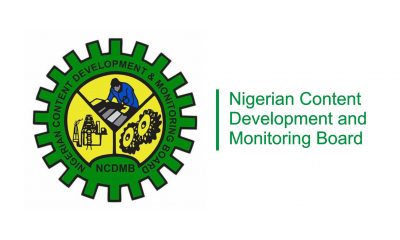
 Business60 mins ago
Business60 mins agoNCDMB, Dangote Refinery Unveil JTC On Deepening Local Content
-
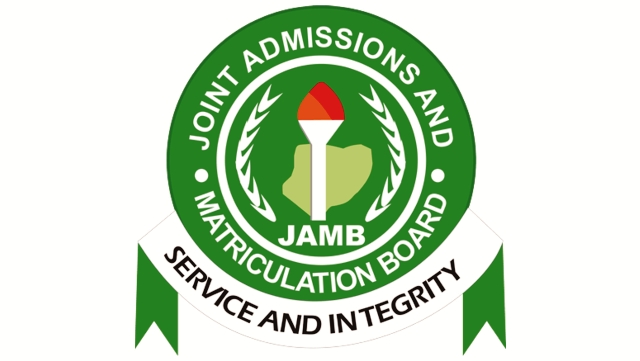
 News4 hours ago
News4 hours agoJAMB Uncovers 9,469 Fake Admissions In 20 Tertiary Institutions
-
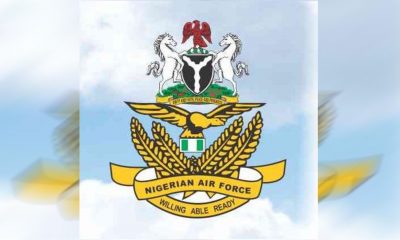
 News3 hours ago
News3 hours agoNAF Disowns Recruitment Adverts, Says It’s Fake
-
Rivers4 hours ago
Okrika Administrator Seeks To Connect Okujagu Ama To National Grid … Donates 30 Life Jackets To Okujagu Ama Boat Drivers
-
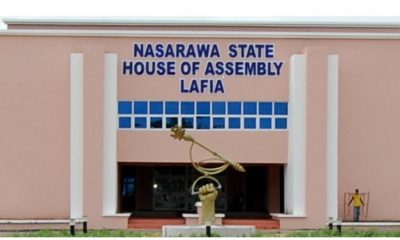
 Politics60 mins ago
Politics60 mins agoNasarawa Speaker Advocates Conducive Executive/Legislature Relations
-
Politics4 hours ago
Natasha’s Counsel Writes Senate Over Court Judgment


